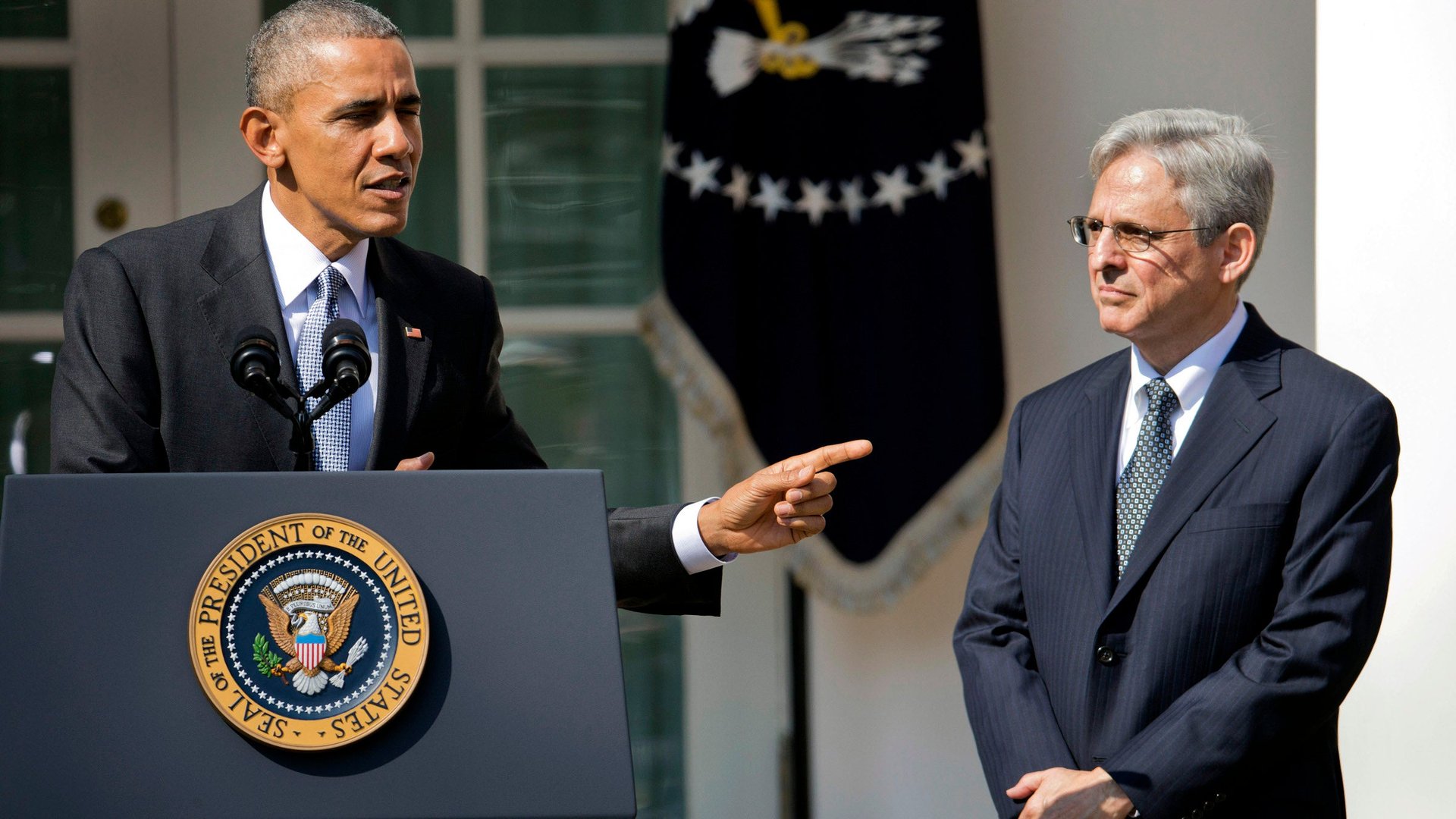Obama taps Merrick Garland for the Supreme Court, and dares Republicans to compromise
US president Barack Obama tapped federal appeals court judge Merrick Garland as his nominee to the Supreme Court, replacing the recently deceased Antonin Scalia.


US president Barack Obama tapped federal appeals court judge Merrick Garland as his nominee to the Supreme Court, replacing the recently deceased Antonin Scalia.
Normally a high-profile but routine bit of government business, the nomination has become a partisan showdown after Republicans in the senate announced their refusal to even meet with Garland, whom one leading Republican called a “fine man” as recently as last week.
Garland, seen as a political moderate, was nominated to his seat on the DC Appeals Court by President Bill Clinton, winning Senate confirmation by a 76-23 vote in 1997. Seven were Republicans who are still in office.
Republican senate leader Mitch McConnell has argued that it is inappropriate to to seat a Supreme Court justice during a presidential election year. He prefers to wait and see if a Republican nominee will win the presidency in November, along with the right to nominate a new justice.
Tilting the balance
The court has recently split 5-4 between conservative and liberal justices on notable cases, and the next justice could tip the scales for decades to come. Though the court has often ruled against Obama, notably on his immigration and environment executive orders, conservatives are still up in arms after the Supreme Court repeatedly refused to invalidate gay marriage or Obama’s signature healthcare law.
Conservatives fear that a more progressive Supreme Court could expand abortion access or restrict gun rights, while the party’s establishment backers fear it could reverse recent decisions that have increased the amount of money in politics. Democrats, meanwhile, would welcome such decisions.
Despite Republican protests to the contrary, precedent shows that the Senate has frequently seated justices during election years, notably in 1988 when a Democratic-senate approved President Ronald Reagan’s nominee, Anthony Kennedy.
Currently, with just eight justices, the Court is somewhat hamstrung. Split decisions are deferred or returned to the appeals court, a move that has led to results more amicable to liberals than had been expected under the current court.
McConnell’s intransigence on nominees is nothing new. Under his leadership, the Senate has held up many of Obama’s judicial nominees, with the American Bar Association tracking 37 unconfirmed nominees for 78 vacant positions.
The Donald Trump factor
But his calculation to draw battle lines over the Supreme Court may have been hasty. Just last month when he made this decision, Donald Trump was just a main contender for the GOP presidential nomination.
Now, Trump is the putative GOP nominee. But if he runs on the Republican ticket, he appears likely to lose to either Democratic contender, and Republicans are already fearful that a Trump nomination could put their fragile control of the Senate in severe jeopardy.
In all, it’s likely that 2017 will be a less friendly environment for a Supreme Court nominee that Republicans can be happy about, or at least tolerate.
Obama succeeded in winning appointments for two Supreme Court justices, Elana Kagan and Sonia Sotomayor, by nominating well-respected jurists and daring Republicans to turn down well-qualified female nominees. Ultimately, they allowed the nominations to go forward.
Now, his party faces the election-year spectacle of Republicans refusing to even meet with, much less vote on, a nominee. This time, he has nominated not a progressive standard-bearer but a centrist justice. The politics are simple: Rather than challenging Republicans to embrace a changing America, Obama is now asking them merely to demonstrate that they are not beyond all compromise.
“[Obama] could easily name Merrick Garland, who is a fine man,” Senator Orrin Hatch, the longest-serving Republican on the committee charged with evaluating potential Supreme Court justices, told Newsmax last week. “He probably won’t do that because this appointment is about the election.”
The public tends to think that Republicans should at least go through the motions of considering the nominee before accepting or rejecting. One recent CNN poll found that 58% of Americans said Obama should pick a new justice to be confirmed by the Senate.